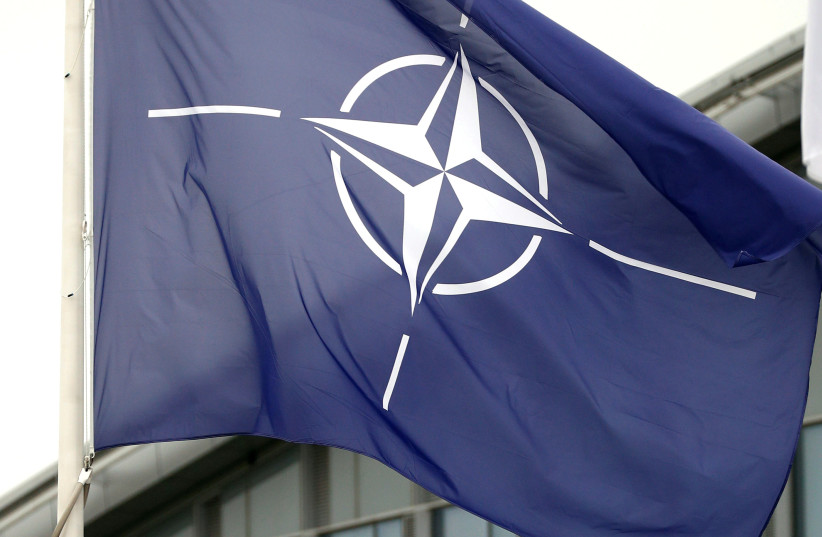China told the United States on Thursday it wants all sides involved in Ukraine to remain calm and avoid increasing tensions, while Washington stressed de-escalation and warned of the security and economic risks from any Russian aggression.
"We call on all parties to stay calm and refrain from doing things that agitate tensions and hype up the crisis," China's Foreign Ministry quoted Foreign Minister Wang Yi as telling U.S. Secretary of State Antony Blinken in a telephone call.
Later on Thursday, China's UN ambassador Zhang Jun said a "time-honored Olympic Truce" for the Beijing Winter Games that begin early next month would start from Jan. 28.
"Let's take this opportunity to promote peace, solidarity, cooperation, and other common values shared by all humanity, to make our world a better place," Zhang tweeted.
The United States, too, put the emphasis on diplomacy.

"Secretary Blinken ... conveyed that de-escalation and diplomacy are the responsible way forward," the US State Department quoted Blinken as saying in the call with Wang, adding that global security and the economic risks posed by further Russian aggression figured in the talks.
However, US-based analysts said that with China-Russia relations possibly at their warmest in history Washington could not expect Chinese backing for its position in the Ukraine standoff.
Russia has been building up its forces on Ukraine's borders for months and has demanded NATO pull troops and weapons from eastern Europe and bar Ukraine, a former Soviet state, from ever joining the US-led military alliance.
ARMS CONTROL
NATO allies reject this but say they are ready to discuss arms control and confidence-building measures.
Daniel Russel, the senior U.S. diplomat for Asia under former President Barack Obama, noted that while China could not be happy about the possibility of an invasion of Ukraine on the eve of the Olympics, "Wang Yi chose to defend Russia's 'legitimate security concerns' rather than offer any support to Blinken."
Bonnie Glaser of the German Marshall Fund of the United States said Beijing could act as a spoiler to any attempts by the United States and its allies to impose costs on Russia.
"It is unlikely that the US can get China on board over Ukraine. Beijing won't endorse use of force, but it is sympathetic with Russian views of NATO. And this is not just about the Olympics," she said.
"If the US/EU impose sanctions on Russia, China is likely to take steps to mitigate their impact," she said.
Wang, apparently referring to NATO's expansion in eastern Europe, told Blinken that one country's security could not be at the expense of others and regional security could not be guaranteed by strengthening or even expanding military blocs, his ministry said.
The United States has urged Ukraine and Russia to return to a set of pacts to end a separatist war by Russian-speakers in eastern Ukraine. But steps set out in the so-called Minsk II agreement remain unimplemented, with Russia's insistence that it is not a party to the conflict and therefore not bound by its terms being a major blockage.
Rand Corporation analyst Derek Grossman said China's readout of the call with Blinken said Wang had highlighted Minsk, even though Russia had never abided by it.
"I don't see much room for US-China cooperation here, unfortunately ... The U.S. would have to close the door to future NATO expansion for China to get on board, and Secretary Blinken has already stated that this is a non-starter."
'MISTAKES'
Wang said the new Minsk agreement was "a fundamental political document recognized by all parties and should be effectively implemented.
"As long as efforts are made in line with the direction and spirit of the agreement, China will support them," he said.
China has strengthened ties with Russia as tension between Beijing and Washington has mounted over issues ranging from trade to human rights, Taiwan and China's extensive maritime claims.
Russian President Vladimir Putin is expected to visit China next week for the Winter Olympics.
Russian troops invaded Georgia in August 2008 while Putin was in China taking in the opening ceremonies of Beijing's Summer Olympics. The crisis took some Western countries by surprise.
Wang underscored the cool state of Beijing's ties with Washington, saying that the United States "continues to make mistakes in its words and deeds on China, causing new shocks to the relationship."
"The top priority at the moment is that the US should stop interfering with the Beijing Winter Olympics, stop playing with fire on the Taiwan issue, and stop creating various anti-China cliques," he said.
The United States, Canada, Australia and Britain have announced they will not send any state officials to the Games because of China's human rights record. China denies rights abuses and had rejected what it calls the politicization of sport.
